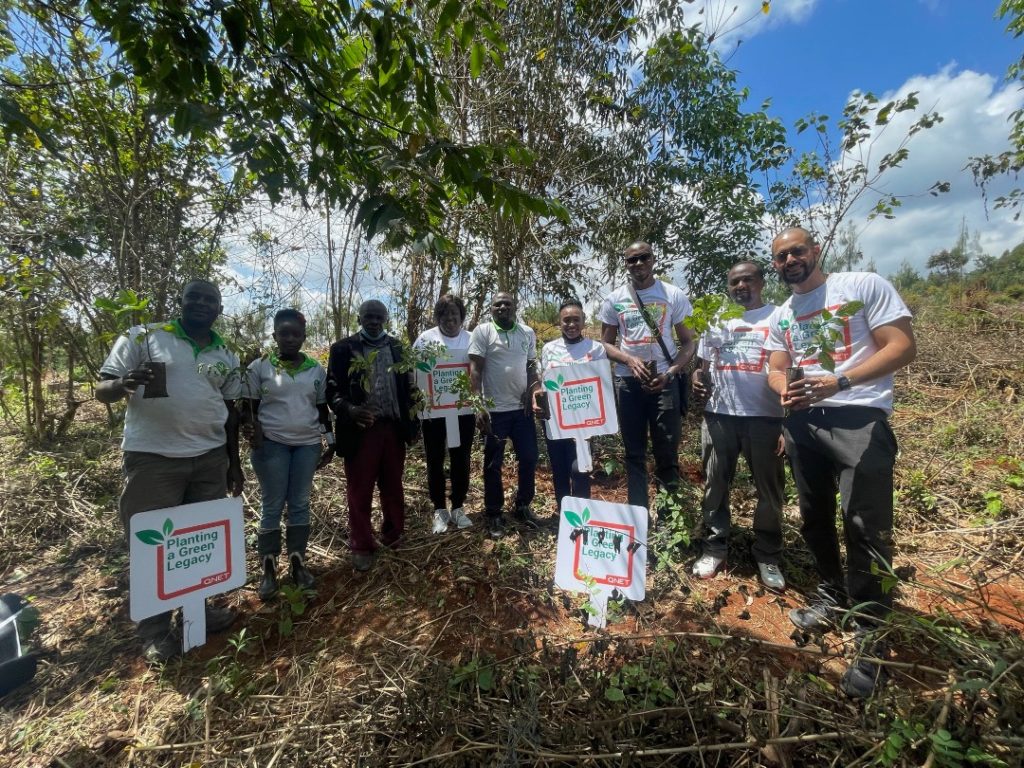It is a known fact that Africa and Asia are the ‘lungs of the world’ because the two continents host the world’s forests. Forests are the natural solution to climate change because they remove and store carbon from the atmosphere and release oxygen. Forests also make up the most cost-effective solution for mitigating climate change.
The United Nations’ Sustainable Development Goals (SDGs) identify reforestation and sustainable forest management as key to combating climate change. This year’s COP 26 Climate Summit in Glasgow saw more than 100 global leaders commit to end and reverse deforestation and land degradation by 2030 as a worldwide solution to reverse the devastating effects of climate change.
By reducing forest loss and reforesting what has already been destroyed, we reduce carbon emissions which will help reverse climate change effects.
Understanding the critical role of forests in the livelihoods, ecology, culture, and health of the communities it operates, QNET, in partnership with EcoMatcher, has launched the Green Legacy Initiative.
What Is The Green Legacy Initiative?
The Green Legacy Initiative is an active action plan to reforest and afforest critical areas of Africa and Asia. The initiative reiterates QNET’s commitment to sustainability. Planting trees actively protects nature and helps improve local ecosystems and generate sustainable agro-forestry livelihoods for local communities.
The initiative is a partnership between QNET and EcoMatcher, a certified B Corporation and social enterprise. Through this partnership, QNET has launched the first phase of the Green Legacy programme by planting forests comprising 1,000 trees in the UAE, Kenya and the Philippines.
The programme contributes to the UN’s SDG10 (Reduced Inequalities), SDG13 (Climate Action), and SDG15 (Life on Land). The three QNET forests collectively support the families of 15 planters in these countries and will sequester 750 tonnes of CO2 over the lifetime of the trees.
Via the EcoMatcher app, QNET can track every tree’s health on a mobile device through ID geolocation, learn each tree’s species, plant date, farmer and even engage with each tree while tracking its carbon impact with easy-to-use dashboards.
Three Forests, Over 3,000 Trees Planted
In Kenya, the QNET forest is being planted in the degraded forest lands of Embu County in Eastern Kenya, while in the Philippines, the forests with indigenous trees are being planted in the Sierra Madre Mountain range. In the UAE, mangrove trees will be planted along the western coast of Dubai.
More than planting trees, the initiative is changing lives and supporting the socio-economic development of the communities where the forests are planted and, of course, reversing climate change in the process.
“Our commitment to reforestation in these communities goes much deeper. We are in a long-term partnership to ensure these forests thrive long into the future while meeting the needs and desires of each community. QNET is building a Green Legacy to protect the planet for all of us,” says QNET CEO Malou Caluza.
QNET’s legacy initiative complements its commitment to sustainability exemplified through its policies, such as being a meat-free organisation and banning single-use plastic in all its offices.
“Our partnership with EcoMatcher is the latest manifestation of our commitment to the environment that stretches back over the past 23 years,” the CEO summed up.
Why forests?
Forests support more than 80% of the world’s species and protect 75% of our freshwater. They reduce the risk of natural disasters such as floods and landslides, and more than 1.6 billion people depend on forests for their livelihoods.
According to the World Wildlife Fund (WWF), tropical forests are losing more than 30 football fields worth of trees every minute. To curb deforestation by 2050, the world must grow trees equivalent to five times the size of India.
